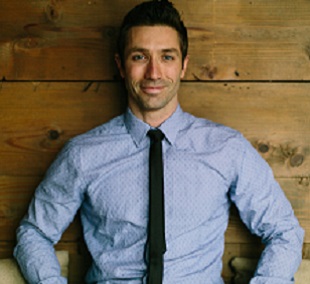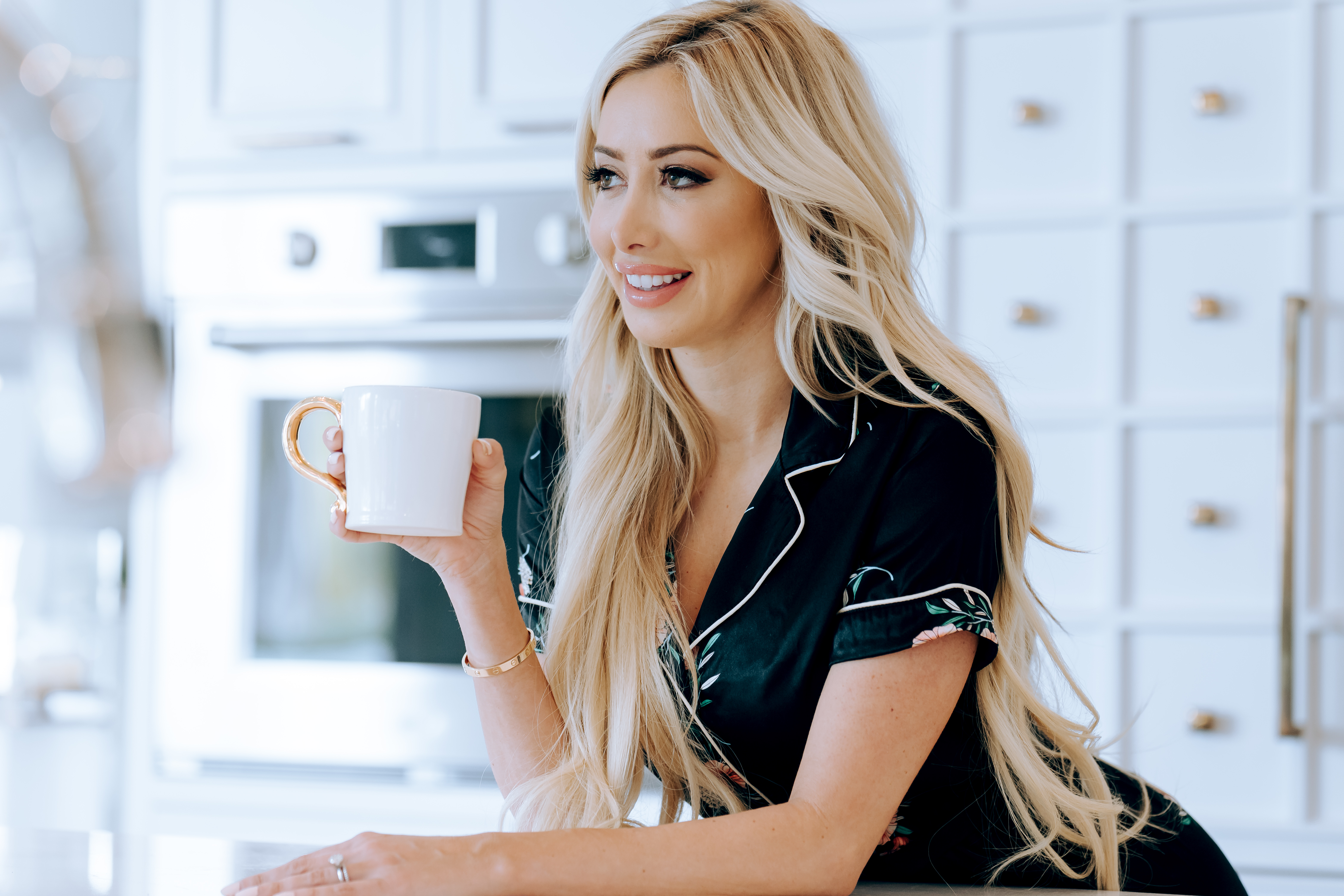“I want women to know how important it is to come together and empower each other.”
When you look at Sarah Pendrick and all she’s accomplished so far in her life, it’s easy to think, “This must have come so naturally for you.” Underneath her talks, Instagram posts and glowing GirlTalk events, however, Sarah’s journey has been anything but a cake walk.
Regardless of GirlTalk’s reach and impact on women, Sarah Pendrick isn’t spreading a dog-eat-dog message telling women to do whatever it takes to be successful or whatever it takes to reach the top. In fact, her message is all about women becoming empowered through collaboration.
In a world where women find it difficult to rise above the clouds of comparison and criticism, it’s a message that feels like ice cold water on a scalding day.
Sarah Pendrick was born into a Southern household as a fully-feminine girl with three brothers. “My family did their best,” she tells me, “They were old-fashioned in that the women stayed at home and the men worked. Women didn’t really have a loud voice.”
But Sarah came into the world boldly and with strong opinions.
“I was a little girl with big dreams. The mindset I grew up with slowly broke down this loud, vibrant, mission-driven girl to fit into a box that others were comfortable with,” she says. “Here was a girl who was breaking the mold and making people feel uncomfortable. And so for their own defense mechanisms, they quieted my voice.”
Sarah’s caretakers gave her the age-old mandate: Girls don’t do that. Girls don’t have opinions like that. This is what you’re going to do. This is what you’re going to think.
All while receiving this message, the girls in Sarah’s neighborhood (who were experiencing their own pain) began bullying her by telling lies about her and leaving her out of activities.
I ask her how old she was when this began. Sarah thinks for a moment. “It was my earliest memory. I had to have been about four-years-old.”
Four-years-old. Younger than my niece. Part of me wants to wonder how this is a thing that women deal with, but the other part of me knows it to be heartbreakingly true.
“I’d always wanted a sister. All I wanted was to have women around me. I wanted to be in the women’s circles.”
Sadly, for four-year-old Sarah, it would only get worse as she reached adolescence. The middle school bullying began when she and her family moved to Arizona.
“There was the normal stuff,” she says, “You know, everyone’s just doing their best, but there’s still mean girl stuff and gossiping. You don’t really know better in middle school. But then I developed faster than the other girls in middle school, so the bullying got worse. I came home one day and my house had been covered in toilet paper and the word slut was written all over the driveway. That fearless little girl went into safety mode.”
But the bullying didn’t shut her down. Those experiences fueled her passion for a movement where women could breach their issues with themselves and their projections onto others and come together for collaboration, empowerment and support.
“I started to feel aware and responsible. I didn’t know exactly what was going on, but I would go to events and read books, trying to learn.” Gabrielle Bernstein’s bestseller, The Universe Has Your Back, was hugely influential for Sarah. “It sent me down the path of self development where I was able to get that little girl back. I started owning my power again. I started knowing that there was nothing wrong with me.”
Sarah went to college for psychology and started understanding different mindsets and the reasons women behave in certain patterns. She noticed that most women operated from a comparison mindset, while constantly giving their power away, accepting less than they deserved and operating without (or with very few) standards.
It was a key moment. Sarah was able to see what her life purpose was.
“I started talking about things like owning my own power and having standards, which are better than boundaries, in my opinion.” A boundary doesn’t allow for flexibility. “With a boundary, you’re not open to what else is possible, but if you have a standard, you can just say, that’s not my standard.”
In my work with powerful female entrepreneurs, I’ve noticed that many of them also struggle with hiding out of shame or fear of being put in a box and don’t even realize it.
“Yes,” Sarah agrees, “and that’s where awareness is key. If you’re not aware, years can go by. But then you’ll have a wake-up call one day, or you’ll start having little wake-up calls, like someone reading this article or maybe you’re reminded of something you loved that you don’t do anymore, and it can suddenly trigger getting back to the real you and owning your voice.”
That’s why Sarah believes it’s our responsibility as humans (and as a woman, if you are one) to walk the talk.
“When you see a woman owning her power, speaking her mind and inspiring others, I look at her and think, wow! No one’s looking at that person thinking, she needs to stop talking. When we own our power, we really do start to make shifts in other people’s lives. Even if those people don’t tell you.”
Sarah’s first event for women was birthed from the desire to share what she’d learned with other women. “I almost feel like it was part of my growth process to throw my first event. I knew that this was what I needed and that other women needed it, so I just decided to do it.”
But there was a caveat to the dream: Sarah had no clue how the first GirlTalk event would be received.
Did ten people show up? I joke.
“No,” she laughs. “Two hundred women came to that first event. I look back and I’m like, I don’t know how that happened. I just knew that this community was needed. When I saw all the women walk in the room, I could see the usual worries of, Am I going to know anyone here? What is this event going to be like? Or, I wish I didn’t buy tickets to this. I could feel that energy as they walked in the door and then watched as all those fears and thoughts melted away.
“When women are together, there’s an unexplainable magic that happens. It changes you faster. It’s why part of my practice is not just constantly growing and discovering myself, but also supporting other women to do the same. The more I do that myself, the greater the impact.”
Since the early days of Sarah’s first events, GirlTalk has grown to become a well-known inspirational brand with events that have toured the nation speaking for women who are multimillionaire bossbabes to women who are college students.
In January, Sarah will host a festival-styled GirlTalk event that will be triple the size of her first event. She’s also starting a show for Entrepreneur that will highlight the stories of women and how they succeeded in owning their power. Additionally, she’s gearing up to write her first book.
Her reasons run deeper than ever before.
“When we’re talking about the empowerment of women, it’s a whole ladder. We’re talking about helping the economy. When we give our power away and don’t speak up, we don’t show up like leaders. So then there’s less women in leadership and it’s a continuing cycle.”
An abdication of leadership.
“When I give my power away, I’m doing a disfavor to not just myself and my friends, but to all of society, our economy and women everywhere.”
I hear that phrase all the time: Giving my power away. But what does it actually mean?
Sarah shares an example. “Say you’re excited about something you just accomplished and then you’re scrolling on social media and you hear so-and-so did X, Y or Z and then instantly you’re upset. You’ve given your power away to whatever it is that you just saw posted. And you were just celebrating! But all of a sudden it’s not good enough. Our brains are still operating from ancient survival days, when women learned to bring each other down to survive. So it’s an old mindset we’re fighting against.”
There’s also language that gives your power away. When we tell ourselves, “I have to finish this,” or, “I have to do this call,” it’s a form of giving away our power, instead of saying, “I get to finish this,” and, “I choose to do this call.”
Giving away your power also looks like choosing not to use your language at all. “If I’m an expert on something or I have a really valuable point to bring to a conversation, and I don’t share it because I’m scared of rejection, I’m giving my power away to that fear.
“Let’s say you’re in a circle with a friend who, you know, if she shared what she had to say, she’d bring so much value to the conversation. It’s our responsibility to be lift her up and empower her to talk about it. If we’re sitting in our group and not speaking up, sharing our gifts, or encouraging other women to do that, we’ve got a huge problem. It’s easy to think that’s it just our little group, but really, there’s a million little groups in the world. We’re all contributing to the bigger feminine economy.”
What does it look like to own one’s power?
Sarah pauses for a moment. “You know,” she says, “a lot of people have lost sight of who they truly are and what they want to do. They started not believing in themselves and just going through the motions of their lives. It happens slowly until you’re like, how did this happen? —basically, the realization that you’ve let someone else or someone else’s ideas rule your life instead of your own.
“The one thing women have needed is just to see other women living from their power. That gives them the confidence and responsibility to own their own. When we own our power and support other women doing the same, the world changes. We get to heal that generational gap of suffering.”
“Owning your own power feels like being at home,” she says. “Most of us know what our purpose is our whole lives, but we get off track. When you come back to owning who you are—it’s difficult to describe with words, but—the feeling is so at home in your body.”
My last question is a bit nostalgic. Does she feel like she did when she was little Sarah, before the hurt and pain; when she was just that bright, bold, unafraid little girl?
Do you think you’ve reclaimed her?
Sarah Pendrick smiles through through the phone. “Yes,” she says. “I do.”


